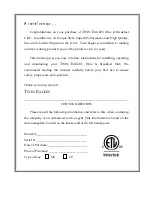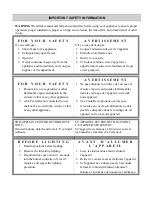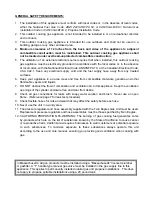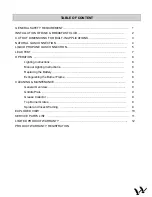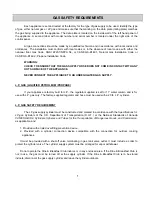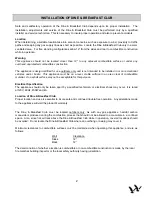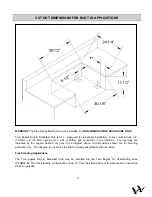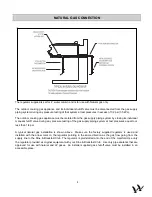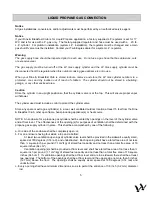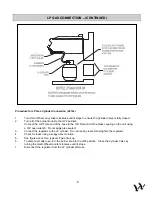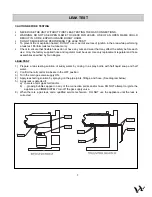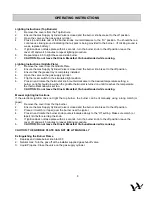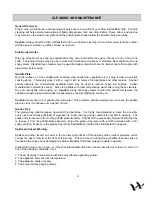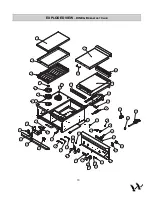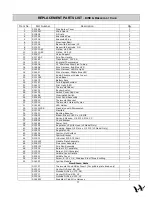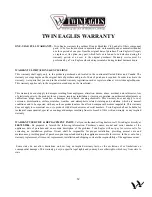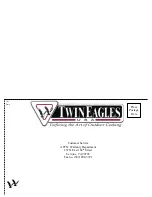
INSTALLATION OF DINE & BREAKFAST CLUB
Safe and satisfactory operation of the Dine & Breakfast Club depends upon its proper installation. The
installation, adjustments and service of the Dine & Breakfast Club must be performed only by a qualified
installer and service technician. This is necessary to insure proper operation and also to prevent accidents.
Location
When determining a suitable location take into account concerns such as exposure to wind, proximity to traffic
paths and keeping any gas supply lines as short as possible. Locate the Dine & Breakfast Club only in a well-
ventilated area. For free standing configurations allow 12” from the sides and rear to combustible construction
while in operation.
Warning
This appliance should not be located closer than 12” to any adjacent combustible surface or under any
overhead unprotected combustible construction.
The appliance is design-certified for use outdoors only and is not intended to be installed in or on recreational
vehicles and/or boats. This appliance must be on a level, stable surface in an area clear of combustible
material. An asphalt surface may not be acceptable for this purpose.
Electrical Specification
The appliance should only be taken apart by a qualified technician, or electrical shock may occur. It is rated
at120V, 60Hz, 450W and 4A.
Location of Dine & Breakfast Club
Proper location and use is essential to insure safe and continued trouble-free operation. Any alterations made
to the appliance will void the product’s warranty.
The Dine & Breakfast Club must be located outdoors only. As with any gas appliance, harmful carbon
monoxide is produced during the combustion process that should not be allowed to accumulate in a confined
space. Also, since hot air rises above the Dine & Breakfast Club while in operation, covered locations should
be avoided. Do not locate the Dine & Breakfast Club where an overhang or awning may cover it.
Minimum clearances to combustible surfaces must be maintained when operating this appliance, and are as
follows:
The determination of whether a location is combustible or non-combustible construction is made by the local
fire marshal, building inspector or the local safety authority having jurisdiction
.
2
Wall
Clearance
Sides
12”
Back 12”


